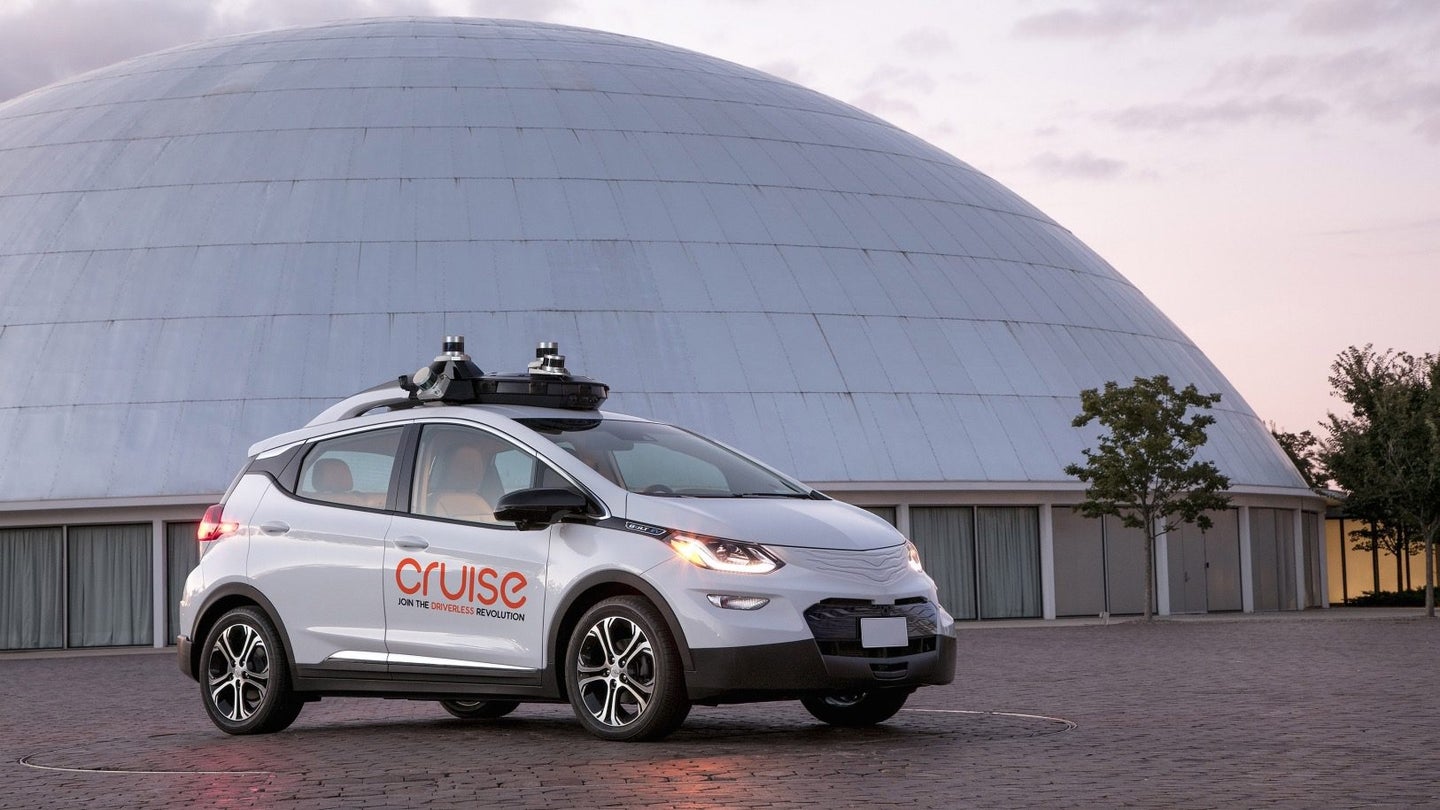GM Wants to Launch a Full-Scale Autonomous Ride-Sharing Service in 2019
But can General Motors pull it off?

General Motors will attempt to leapfrog competitors in the race to self-driving cars over the next few years. On Thursday, the automaker announced plans to launch a large-scale autonomous ride-hailing service in multiple U.S. cities in 2019.
"If we continue on our current rate of change we will be ready to deploy this technology, in large scale, in the most complex environments, in 2019," GM president Dan Ammann said at an investor meeting in San Francisco, according to Reuters. GM CEO Mary Barra added that the company can meet this target because it has all of the necessary resources to manufacture and deploy self-driving cars "under one roof."
The self-driving car scene includes three types of players: Tech companies that supply hardware and software to make vehicles autonomous, ride-hailing companies providing a potential commercial outlet for autonomous vehicles, and automakers that build the cars themselves. While many companies are engaging in partnerships, GM wants to play all three roles itself.
GM's 2016 purchase of Cruise Automation gave it access to autonomous-driving tech. In September, Kyle Vogt said its autonomous Chevrolet Bolt EV electric cars are ready to operate in the real world without a driver, unrestricted. GM already builds the autonomous cars on the same assembly line as the conventional Bolt EV, making large-scale production feasible.
How GM will set up the ride-sharing component is a bit less clear. The automaker invested $500 million in Lyft last year, but Lyft seems to have grown closer to Waymo and GM rival Ford recently. GM does have a division dedicated to mobility services, Maven, but it focuses primarily on car sharing, not ride-hailing. Granted, Cruise has operated a pilot ride-sharing program for its employees in San Francisco for the past few months.
GM has ample motivation to figure out ride-hailing. Ammann told investors that the potential lifetime revenue from one self-driving car could be "several hundred thousands of dollars," compared to the average $30,000 GM generates from a car today, mostly from the sale itself.
GM expects autonomous cars to continually generate revenue over their entire lives because they will be used in ride-hailing, rather than sold to individual customers outright. GM CFO Chuck Stevens said autonomous ride sharing could be "potentially bigger than our current core business, with better margins." The company hopes to cut the cost of autonomous-driving tech, such as lidar sensors, in order to achieve those better margins.
Barra said the biggest opportunities for self-driving cars would initially be on the East and West Coasts. That's not surprising, given that the coasts are full of densely-populated cities and tech-savvy consumers. GM believes it's too early to discuss branding, but the first cars will likely be versions of the Chevy Bolt EVs Cruise is testing now. The service itself could carry Cruise or Maven branding.
